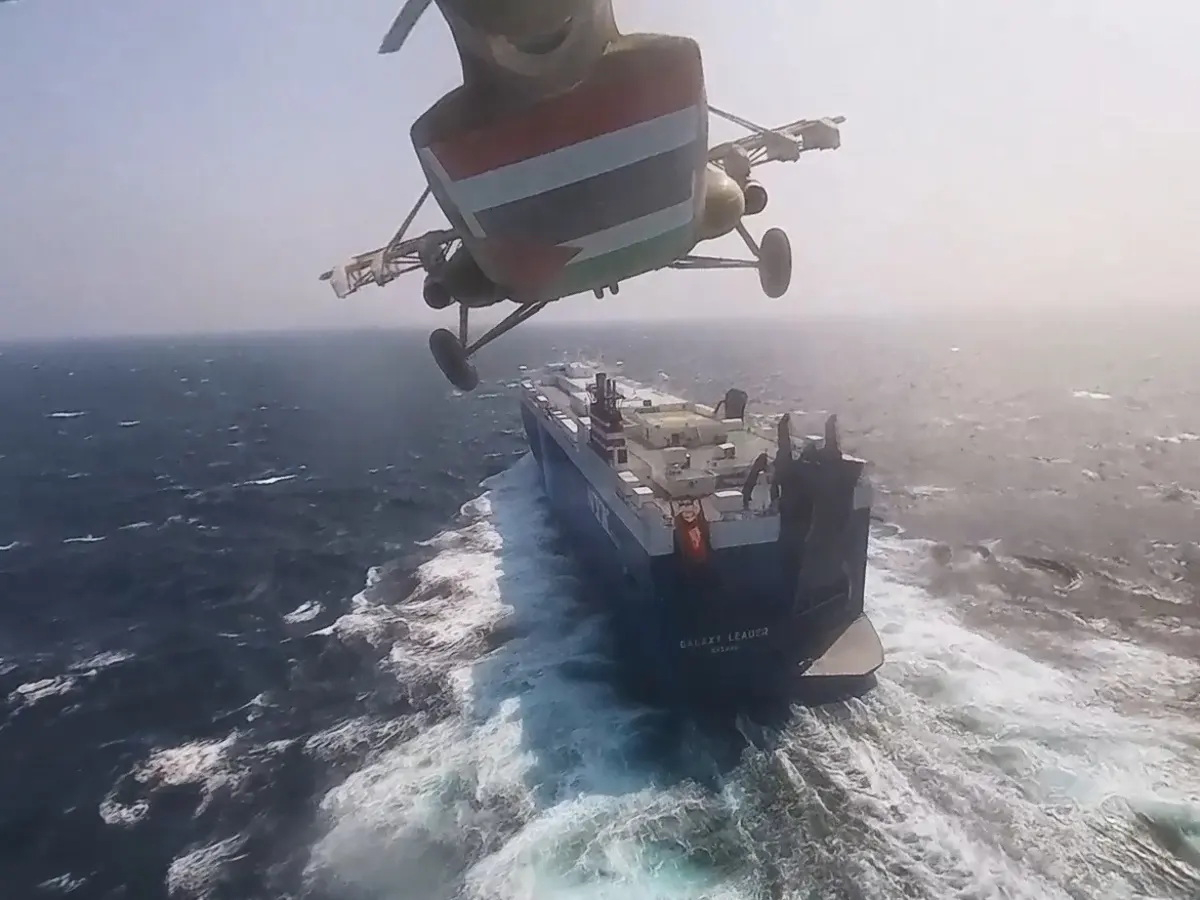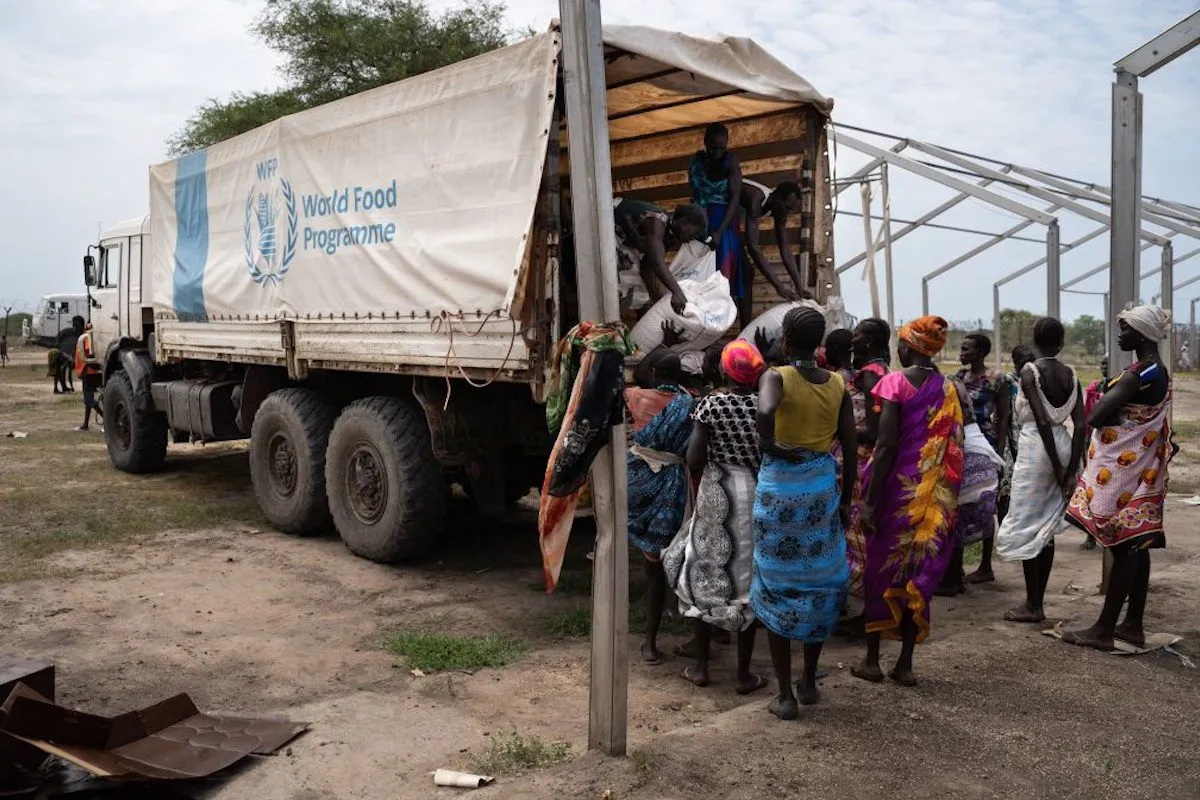Houthi attacks on ships in the Red Sea are hampering vital aid shipments to Sudan and increasing costs for humanitarian agencies in the East African country, where conflict has left millions at risk of famine.
Ships carrying aid from Asia to Port Sudan now have to go around Africa, cross the Mediterranean and then enter the Red Sea via the Suez Canal from the north, leading to major delays and increased transport costs.

A Houthi military helicopter follows the cargo ship Galaxy Leader in the Red Sea last November, which was later attacked - Photo: Reuters
“This change in route has made our operations very costly,” said Eatizaz Yousif, director of the International Rescue Committee in Sudan. “Shipments that used to take a week or two at most now take months to reach us.”
Fighting between rival military factions has devastated Sudan since April. Half of the country’s 48 million people are in urgent need of food aid and nearly 8 million have been forced to flee their homes, creating the world’s largest internal displacement crisis.
Aid groups responding to the crisis were already struggling with instability, funding shortages and bureaucratic hurdles when Houthi forces began attacking Red Sea ships last November to demand an end to Israel's offensive on Gaza.
Smaller aid shipments are being unloaded at ports in the United Arab Emirates (UAE), passing through Saudi Arabia and then being shipped to Sudan from Jeddah, a route that avoids the Yemeni coast. Some aid is being delivered from Kenya or across the Egyptian border.

Millions of Sudanese are relying on humanitarian aid to survive amid the country's devastating civil war - Photo: MEM
All of these routes take longer, cost much more and involve a greater amount of bureaucracy than shipping goods directly to Port Sudan, the main hub for international aid agencies in the country, said Omer Sharfy, head of local supply chain management at Save the Children.
“The Houthi offensive has completely strangled the market. Medical supplies are very scarce,” said Sharfy, adding that the closure of the Red Sea meant that a shipment of life-saving nutrition supplies, distributed by Save the Children in late November, only arrived in January.
Another major aid group, which declined to be named for security reasons, said it was still waiting for two shipments of insulin (for diabetics) and several other medicines.
The supplies were due to reach their beneficiaries in January but are stuck in Dubai, with the organization facing air freight costs of $160,000 to deliver the next batch of drugs, compared to the previous $20,000 cost to ship them by sea.
Scores of children have died of starvation and preventable diseases in Sudan’s western Darfur region, where war and looting have hampered humanitarian access. Aid workers fear the coming months could bring mass starvation to much of Sudan if aid routes remain disrupted.
Quang Anh (according to Guardian)
Source




















































![[Maritime News] More than 80% of global container shipping capacity is in the hands of MSC and major shipping alliances](https://vphoto.vietnam.vn/thumb/402x226/vietnam/resource/IMAGE/2025/7/16/6b4d586c984b4cbf8c5680352b9eaeb0)













































Comment (0)